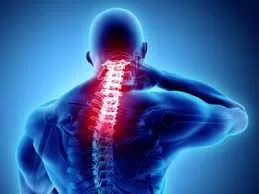As women approach menopause, a significant transition in their health occurs, often marked by various physical and emotional symptoms such as hot flashes, mood changes, and sleep disturbances. Beyond these symptoms, menopause can profoundly impact cardiovascular health, leading to an increased risk of heart disease. Medical News Today investigates the reasons behind this heightened risk and offers guidance from leading experts on how women can protect their heart health during this pivotal life stage.
Historically, cardiovascular disease (CVD) has been perceived as a predominantly male concern. However, recent findings from the American Heart Association (AHA) reveal that heart disease is the leading cause of death among women, surpassing all forms of cancer. Notably, the risk of heart disease can escalate dramatically during the perimenopausal and postmenopausal years, prompting medical professionals to urge increased awareness and preventive measures.
Understanding Menopause and Heart Health
Menopause, which typically occurs around the age of 52, encompasses several stages:
- Perimenopause: This transitional phase can begin several years before the last menstrual period and lasts until menopause is confirmed 12 months after the last period.
- Menopause: Marked by the cessation of menstrual cycles.
- Postmenopause: The period following menopause.
During these stages, particularly after estrogen levels decline, women may experience several symptoms, including irregular periods, mood swings, and sleep issues. According to Dr. Deborah Matthew, Chief Medical Advisor at the BHRT Training Academy, “Estrogen is very protective of heart health for women. Pre-menopausal women have much lower risks for heart disease and high blood pressure than men. After menopause, when estrogen levels drop, this risk increases significantly.”
Estrogen plays a crucial role in maintaining cardiovascular health by promoting vasodilation, reducing inflammation, and mitigating oxidative stress—key contributors to heart disease. The loss of these protective effects post-menopause can result in elevated cholesterol levels, increased blood pressure, and a rise in visceral fat, all of which contribute to a higher risk of cardiovascular issues.
Cardiovascular Risks Associated with Menopause
As estrogen levels decline, women become susceptible to a range of cardiovascular risks, including:
- Coronary artery disease: Estrogen deficiency accelerates atherosclerosis, leading to heart attacks.
- Hypertension: The loss of estrogen reduces tissue elasticity and promotes higher blood pressure.
- Arrhythmias: Hormonal fluctuations may trigger heart rhythm irregularities, including palpitations and atrial fibrillation.
- Stroke: Elevated blood pressure and arterial stiffness increase stroke risk.
- Heart failure: A weakened heart muscle can develop due to untreated hypertension or coronary artery disease.
Dr. Jennifer Wong, a board-certified cardiologist, emphasizes that menopause symptoms like hot flashes and sleep disturbances are not just bothersome but are associated with a greater risk of cardiovascular disease. Furthermore, women experiencing early menopause (before age 40) face an even higher risk.
Recommendations for Maintaining Heart Health
To minimize the risk of heart disease during menopause, experts recommend a multi-faceted approach:
- Lifestyle Modifications: Embrace a heart-healthy lifestyle by increasing physical activity, managing stress, and adopting a nutritious diet. Dr. Robin Noble suggests a Mediterranean diet rich in plant-based foods and whole grains, and incorporating fish while limiting processed foods.
- Hormone Replacement Therapy (HRT): Hormone therapy can alleviate menopause symptoms and may also reduce cardiovascular risk. Studies indicate that estrogen therapy initiated within 10 years of menopause can lower the progression of atherosclerosis and reduce heart disease mortality. However, personalized discussions with a healthcare provider are crucial to determine the most suitable therapy.
- Regular Health Monitoring: Regular check-ups to monitor blood pressure, cholesterol levels, and other cardiovascular risk factors are essential. This proactive approach can help identify potential issues early and facilitate timely intervention.
Conclusion
While menopause is associated with an increased risk of cardiovascular disease, women can take significant steps to protect their heart health as they age. By adopting healthy lifestyle choices, considering hormone therapy, and maintaining regular medical consultations, women can navigate this transition more effectively and reduce their cardiovascular risks. As the medical community continues to unravel the complexities of menopause and heart health, empowering women with knowledge and resources remains paramount in promoting longevity and well-being.











